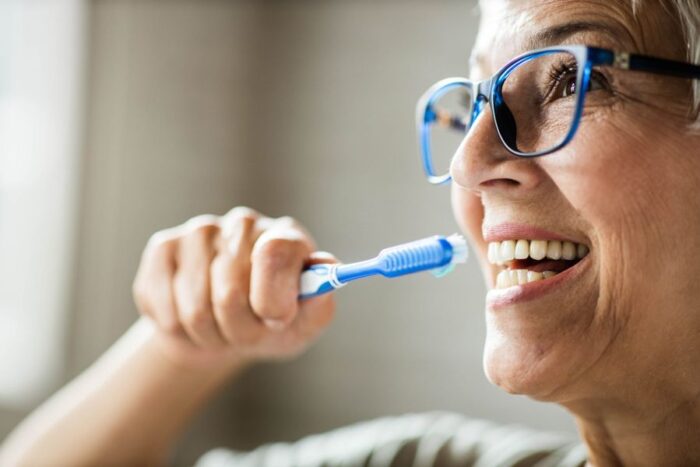Maintaining good oral hygiene is the key to a healthy, beautiful smile. This proves true when you receive fixtures in your smile like dental implants. These prosthetic teeth offer highly beneficial and comprehensive restoration for your smile in the wake of tooth loss.
Many people appreciate that implants do not require extra maintenance, unlike removable tooth replacement solutions like dentures. But you must still take care of your smile through oral hygiene if you want to avoid further dental problems and maximize the advantages of implant dentistry. Find tips to keep your dental implants clean and healthy through proper oral hygiene when you read on.

Practice Consistent Oral Hygiene
The average dental patient will need to complete oral hygiene at home which includes daily flossing and brushing the teeth at least twice each day, morning and night. Sticking to this schedule and not skipping this routine ensures that you remove naturally accruing plaque and other residues or particles from your smile in a timely fashion.
When you receive dental implants, you still gather plaque and build-up on your teeth throughout your day which requires removal through oral hygiene. So make sure you adhere to your usual regimen or face consequences related to dental erosion and bacterial spread.
You will not have to brush your teeth or floss more frequently to the presence of implants in your smile. But you will need to continue good oral hygiene habits.
While you heal from the surgery to receive implants, you should follow your dentist’s aftercare guidelines to avoid hurting the healing sites with your oral hygiene routine. You should also note that good oral hygiene includes attending regular professional teeth cleaning appointments at your dentist’s office.
Use Optimal Hygienic Tools
You know that you must use a toothbrush, toothpaste, and floss during your oral hygiene regimen. But the tools you use for this process can impact the effectiveness of your oral cleanliness. Use ADA-approved hygienic products to ensure your mouth gets as clean as possible.
You should also choose a soft-bristled toothbrush to avoid scratching your dental implants. Not only could this disrupt the appearance of your prosthetic teeth. But it may also disturb the fixtures to allow bacteria to hurt your smile and the implant. Gentler hygienic supplies can ensure you keep your smile clean without harming your dental work.
You might want to consider alternative oral hygiene supplies designed to navigate around fixtures like implants. For instance, while traditional string floss is highly effective, a water flosser can feature a specialized tip to help clean between the teeth and the fixed devices in your smile. A flexible brush might also assist you in achieving a more thorough clean around the implant.
Mouthwash can boost your oral hygiene, but you should avoid using this product directly after your implant surgery. Consult with your dentist to learn more about the right tools to practice oral hygiene when you have dental implants.
